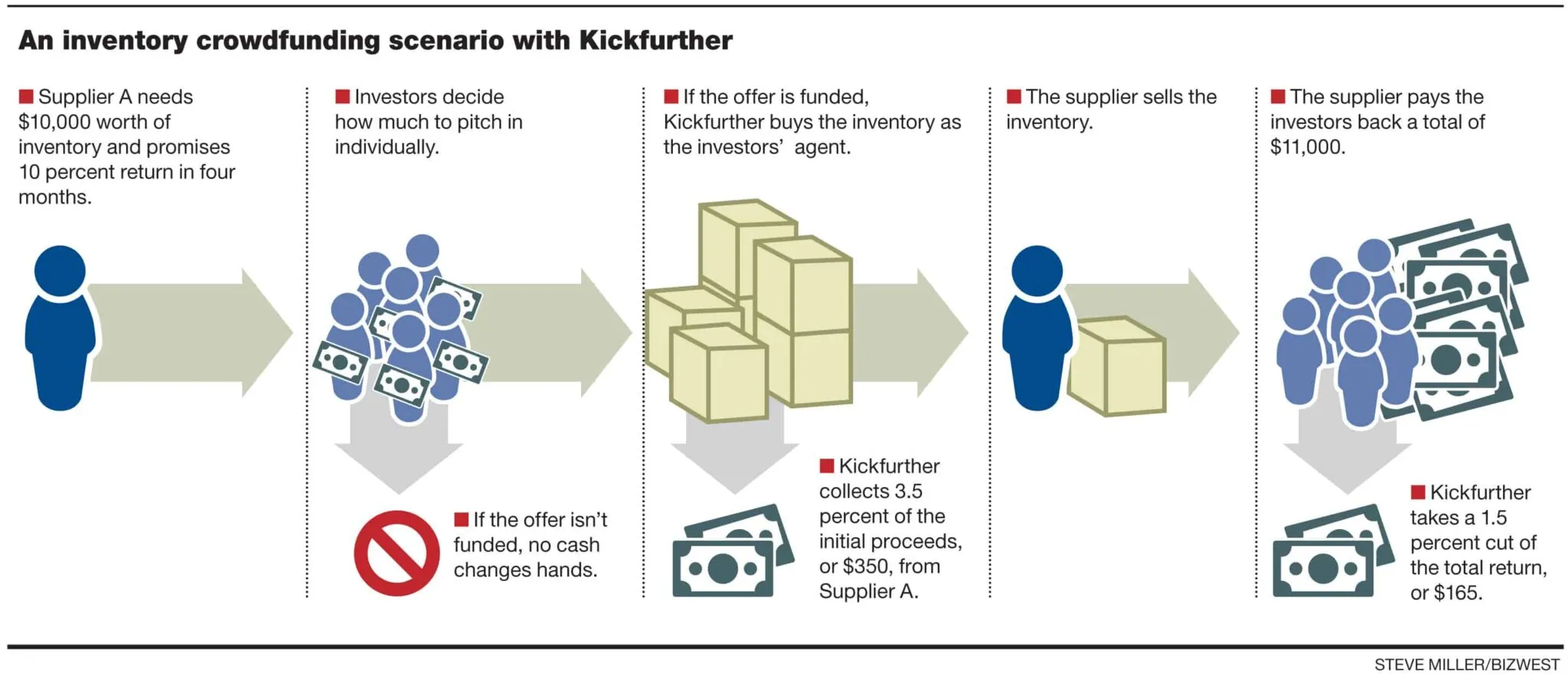Kickfurther: Funding for the next step

BOULDER – A new startup believes it’s providing a solution for companies that are looking to grow after their initial production runs but are still too small to get banks to lend them money for more inventory.
And as the U.S. Securities and Exchange Commission continues to delay final rules for crowdfunding securities with non-accredited investors, Kickfurther’s model for crowdfunding inventory provides a new platform for investors to potentially gain bigger returns on their money than they otherwise could.
“We’re big believers that capital investment is the way to get wealthy,” co-founder Sean De Clercq said. “There…
THIS ARTICLE IS FOR SUBSCRIBERS ONLY
Continue reading for less than $3 per week!
Get a month of award-winning local business news, trends and insights
Access award-winning content today!
